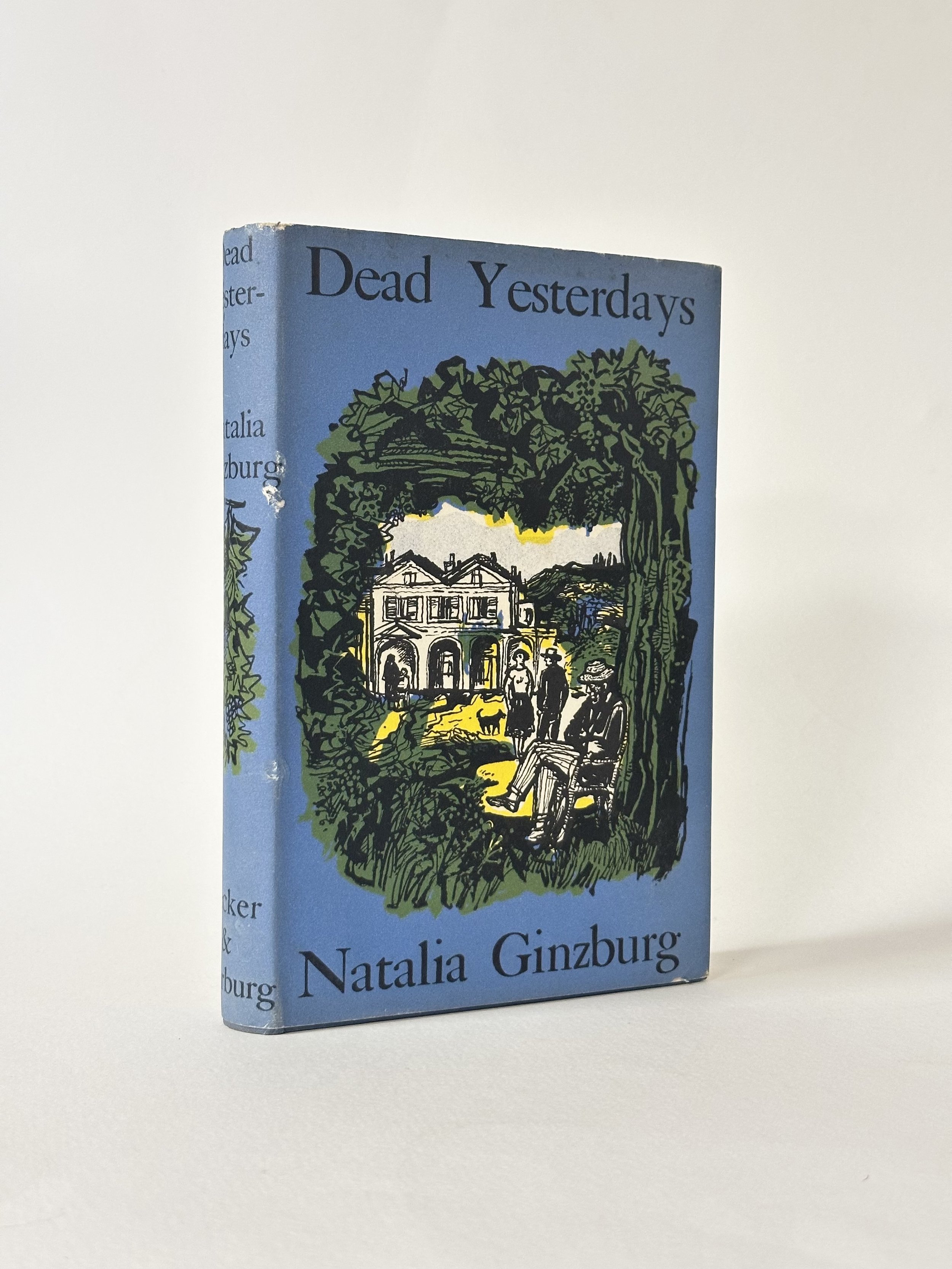 Image 1 of 5
Image 1 of 5

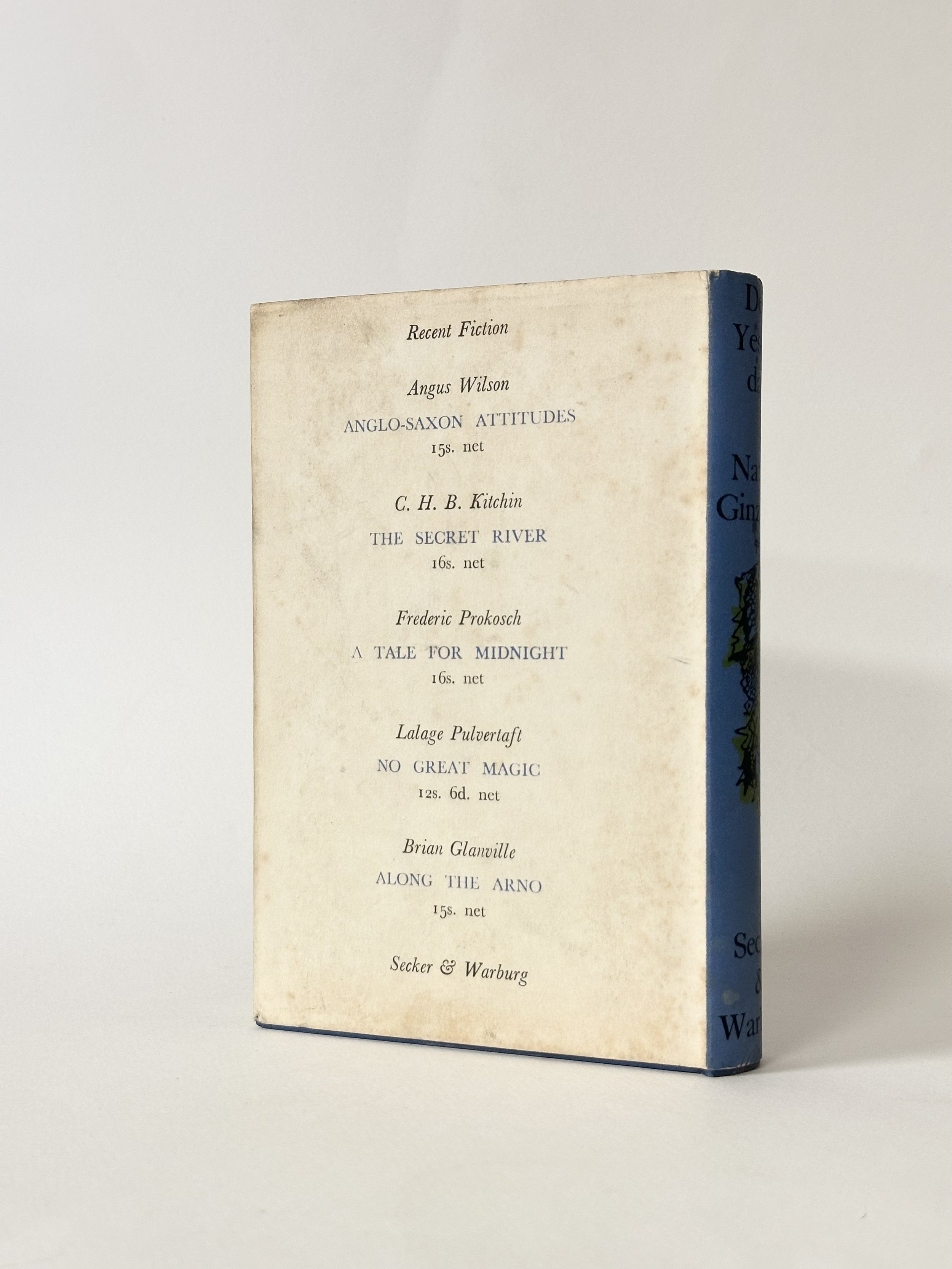 Image 2 of 5
Image 2 of 5

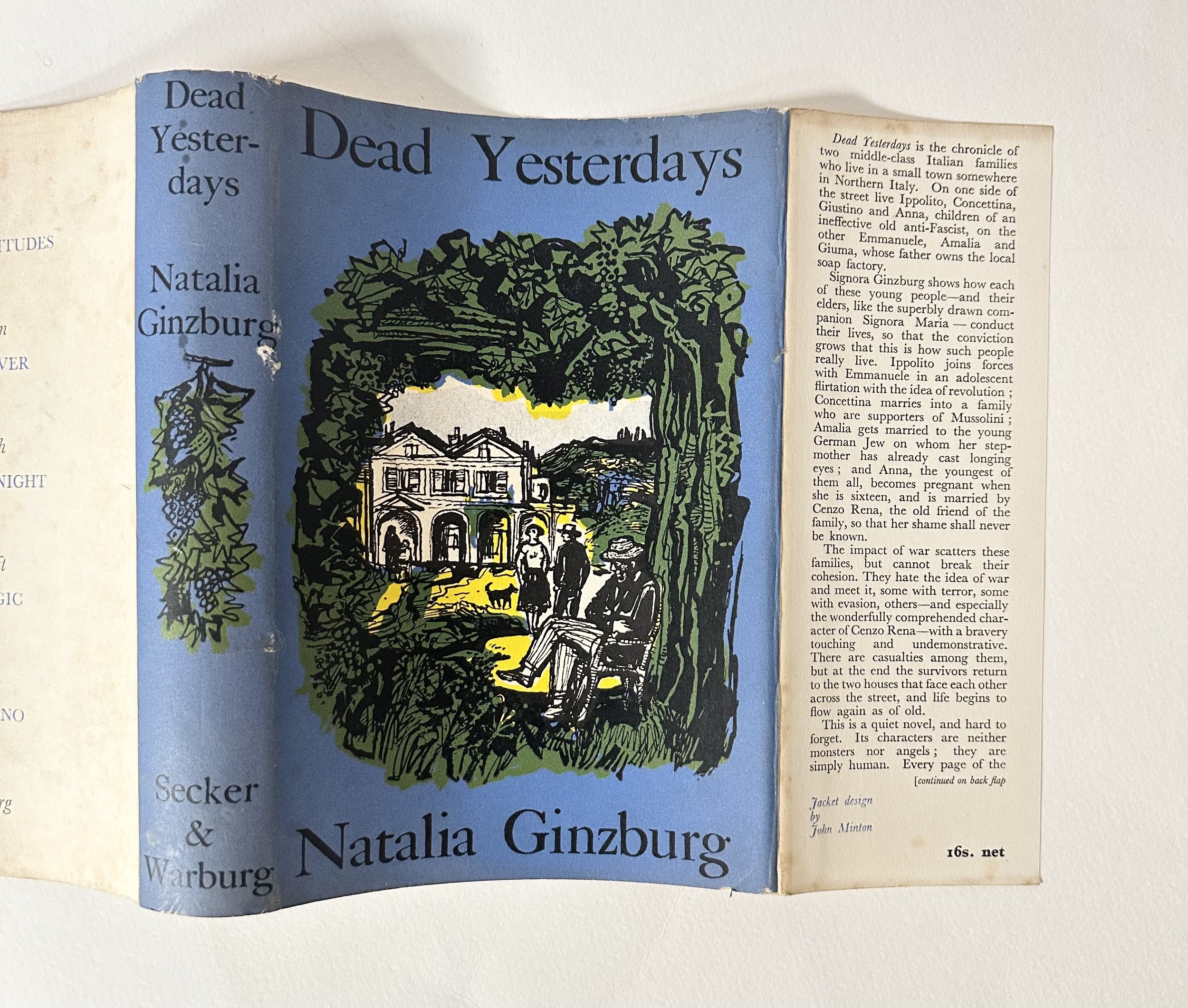 Image 3 of 5
Image 3 of 5

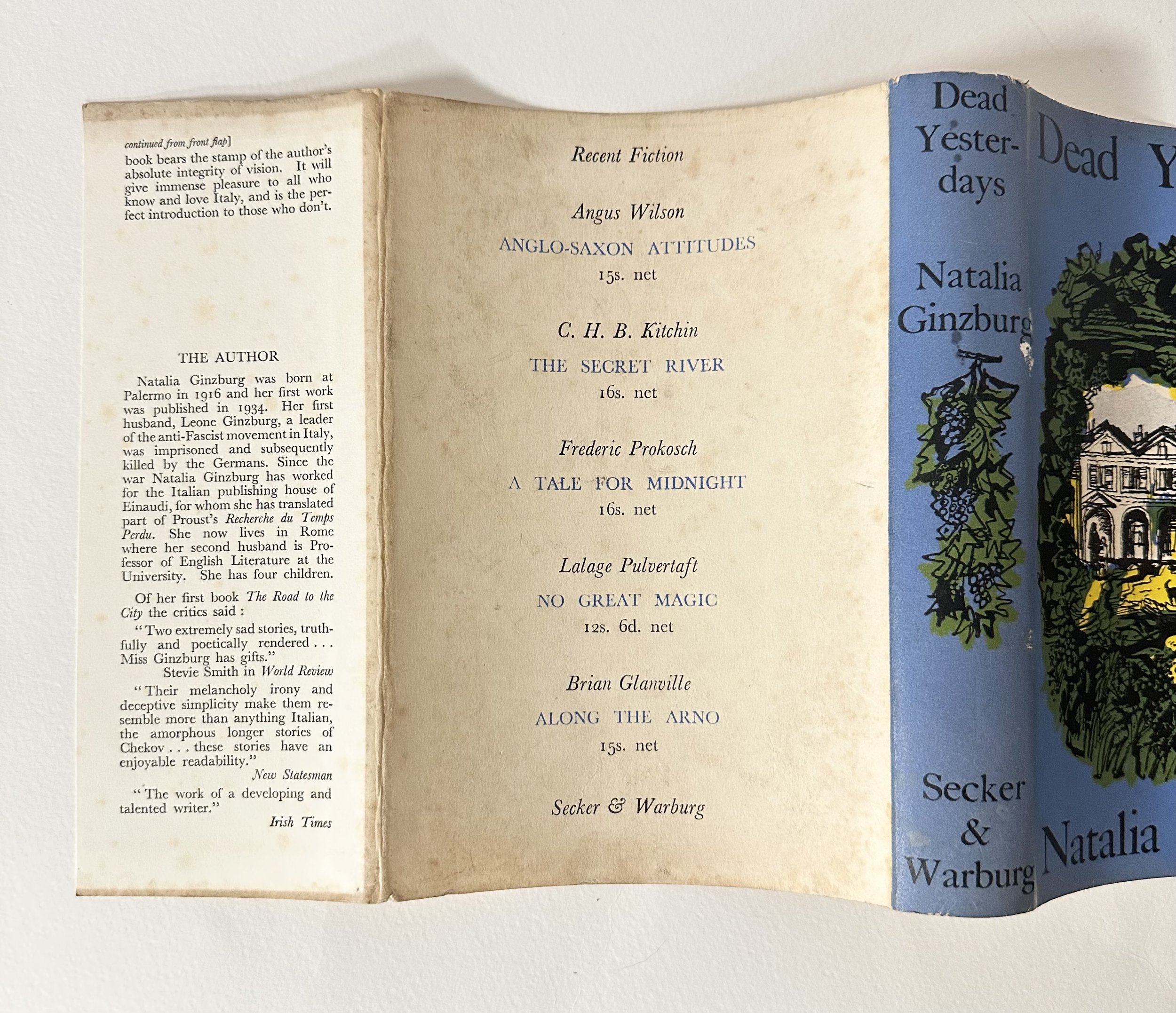 Image 4 of 5
Image 4 of 5

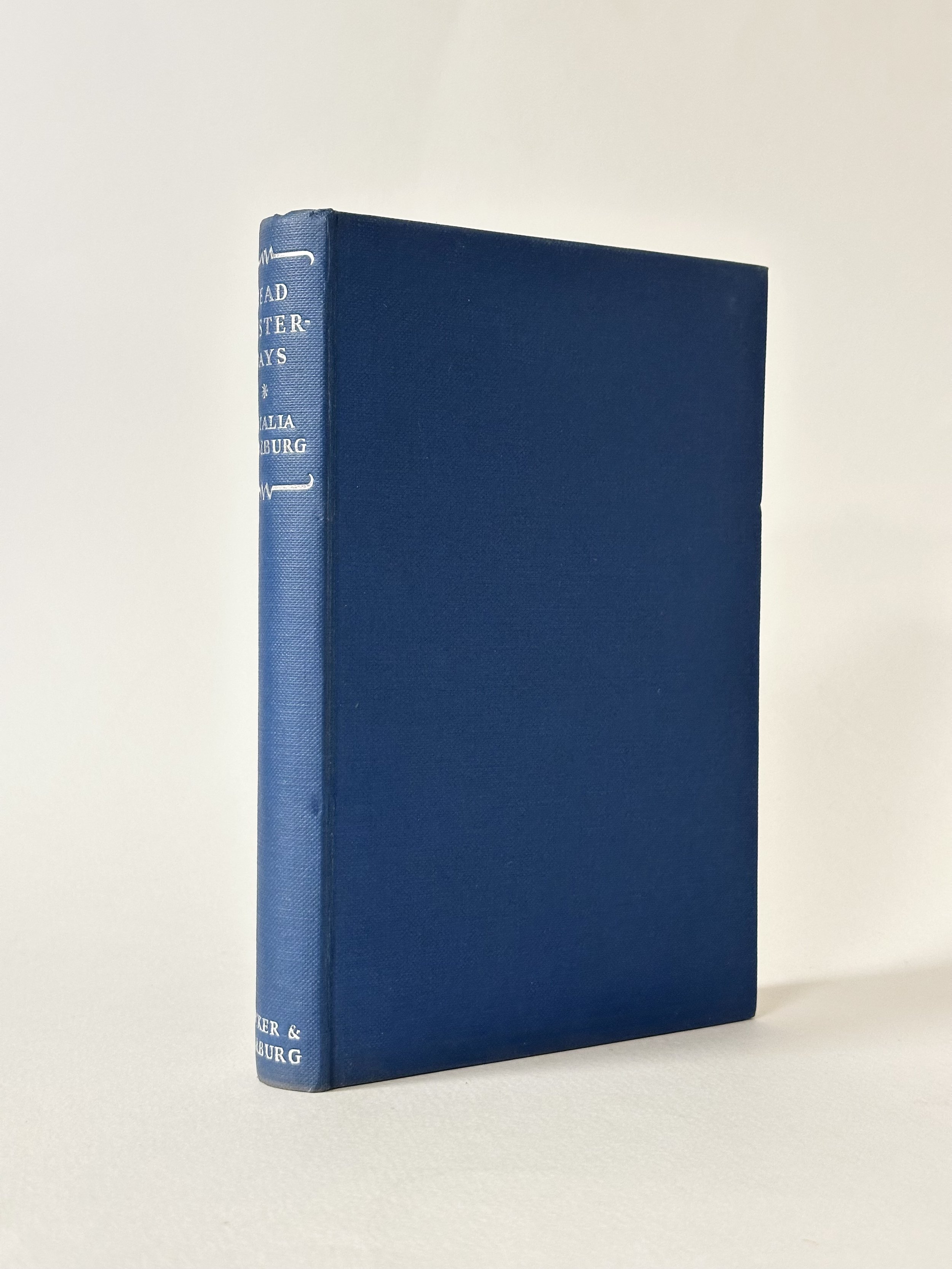 Image 5 of 5
Image 5 of 5






GINZBURG, Natalia. Dead Yesterdays
GINZBURG, Natalia. Dead Yesterdays. Trans. from the Italian by Angus Davidson. London: Secker and Warburg. 1956. 8vo. First English language edition. Publisher’s blue cloth lettered in silver gilt to the spine, in the dust jacket designed by John Minton. A very good copy, the cloth clean, very slight abrasion to the gilt lettering at spine. The binding tight and square, the contents clean and bright, with some very mild scattered foxing to textblock edges, endpapers and some prelims. The dust jacket unclipped (16s net), just gently bumped to extremities, abrasion to spine joint, but a nice copy overall.
Originally published as Tutti i nostri ieri (1952), this is Ginzburg’s third novel and follows two middle-class families from a small town in northern Italy, set against the backdrop of post-Mussolini Italy, where fascism and anti-fascism, revolution and reality, lived together. Ginzburg might best be remembered as the wife of Leone Ginzburg, a prominent leader in the anti-fascist movement in Italy who was later tortured and murdered by the Nazis. However, Natalia had a colourful life before and after the war, conspiring in secret meetings with the Communists in Italy. Postwar, she worked for Turin publishers Einaudi, publishing works by Primo Levi, Italo Calvino, and others.
GINZBURG, Natalia. Dead Yesterdays. Trans. from the Italian by Angus Davidson. London: Secker and Warburg. 1956. 8vo. First English language edition. Publisher’s blue cloth lettered in silver gilt to the spine, in the dust jacket designed by John Minton. A very good copy, the cloth clean, very slight abrasion to the gilt lettering at spine. The binding tight and square, the contents clean and bright, with some very mild scattered foxing to textblock edges, endpapers and some prelims. The dust jacket unclipped (16s net), just gently bumped to extremities, abrasion to spine joint, but a nice copy overall.
Originally published as Tutti i nostri ieri (1952), this is Ginzburg’s third novel and follows two middle-class families from a small town in northern Italy, set against the backdrop of post-Mussolini Italy, where fascism and anti-fascism, revolution and reality, lived together. Ginzburg might best be remembered as the wife of Leone Ginzburg, a prominent leader in the anti-fascist movement in Italy who was later tortured and murdered by the Nazis. However, Natalia had a colourful life before and after the war, conspiring in secret meetings with the Communists in Italy. Postwar, she worked for Turin publishers Einaudi, publishing works by Primo Levi, Italo Calvino, and others.
GINZBURG, Natalia. Dead Yesterdays. Trans. from the Italian by Angus Davidson. London: Secker and Warburg. 1956. 8vo. First English language edition. Publisher’s blue cloth lettered in silver gilt to the spine, in the dust jacket designed by John Minton. A very good copy, the cloth clean, very slight abrasion to the gilt lettering at spine. The binding tight and square, the contents clean and bright, with some very mild scattered foxing to textblock edges, endpapers and some prelims. The dust jacket unclipped (16s net), just gently bumped to extremities, abrasion to spine joint, but a nice copy overall.
Originally published as Tutti i nostri ieri (1952), this is Ginzburg’s third novel and follows two middle-class families from a small town in northern Italy, set against the backdrop of post-Mussolini Italy, where fascism and anti-fascism, revolution and reality, lived together. Ginzburg might best be remembered as the wife of Leone Ginzburg, a prominent leader in the anti-fascist movement in Italy who was later tortured and murdered by the Nazis. However, Natalia had a colourful life before and after the war, conspiring in secret meetings with the Communists in Italy. Postwar, she worked for Turin publishers Einaudi, publishing works by Primo Levi, Italo Calvino, and others.
